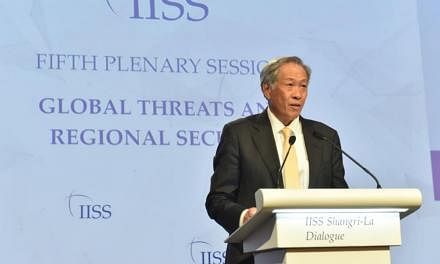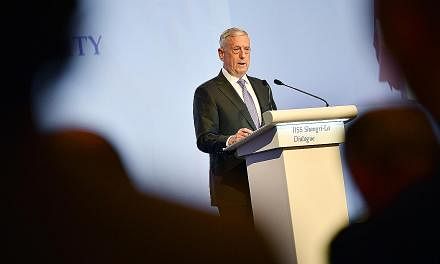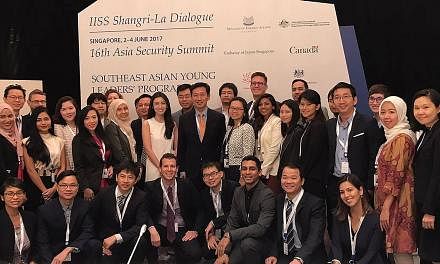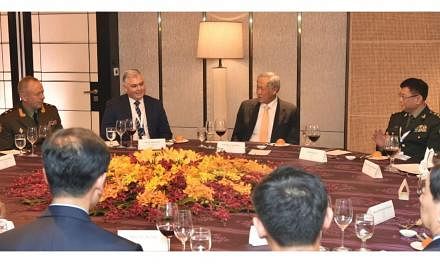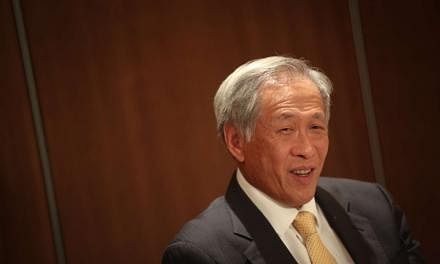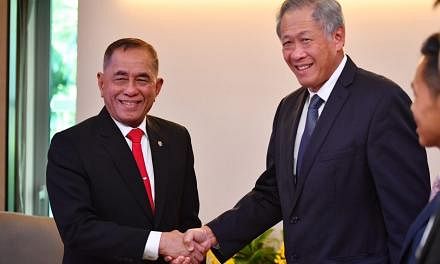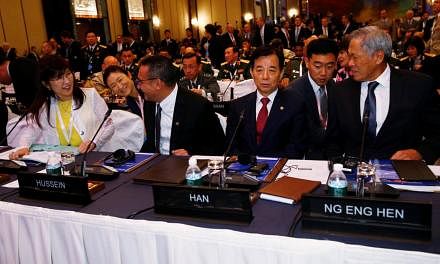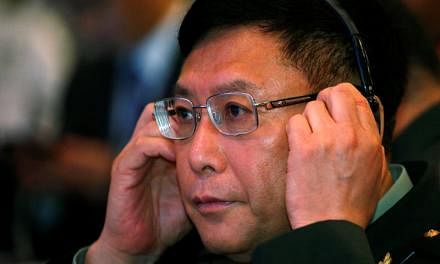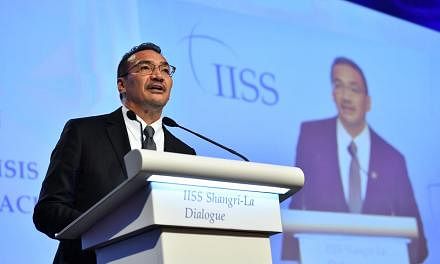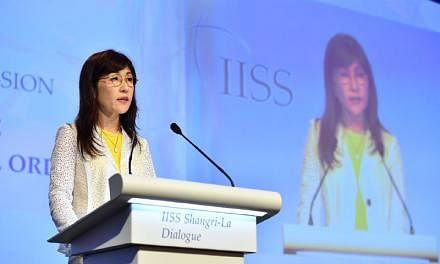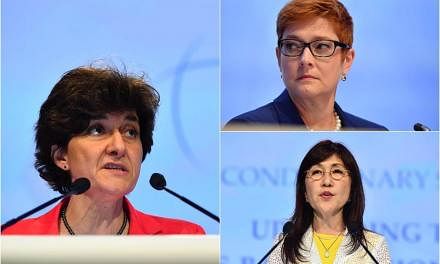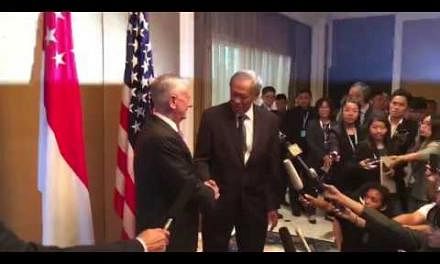SINGAPORE - While it is encouraging that China has condemned recent actions by North Korea, it has the power to do much more, Australian Defence Minister Marise Payne said.
Ms Payne urged China to continue on this path, pointing out that the country is a key source of foreign investment, energy and export income for North Korea.
Australia continues to work closely with the United States, and other partners, to apply diplomatic and economic pressure on North Korea in an attempt to curb its erratic behaviour, but China has unrivalled influence.
"They do have a broad range of options to exert non-military pressure on North Korea, unlike any other country," she said at the annual Shangri-La Dialogue on Saturday (June 3).
Ms Payne was one of three female defence ministers speaking on upholding the international rules-based order at the annual security summit.
North Korea, which has carried on with its nuclear tests and missile launches despite condemnation from countries around the world, is an urgent reminder of the need for this rules-based order.
"The regime's flagrant disregard for international norms, building new nuclear weapons is all the more alarming in light of threats to use them. We obviously can't afford to dismiss those threats as empty, given their track record of defying international law and UN Security Council resolutions," she said.
China warned North Korea in April that it would impose unilateral sanctions should Pyongyang continue with its nuclear tests, and has backed UN Security Council efforts to curb the communist regime's actions.
All three panellists agreed that the international rules-based order has been the cornerstone of stability, with Ms Payne citing China as the greatest example of a country that has benefited from this.
China has lifted half a billion people out of poverty, in large part by engaging with global markets in a stable security environment, she noted.
But this rules-based order is under challenge, said the panellists. While North Korea surfaced as a critical challenge, the highly-contested South China Sea was also raised by all three defence ministers as an issue that highlighted the importance of rule of law.
Japanese Defence Minister Tomomi Inada spoke of "unprovoked and unilateral attempts to change the status quo… incompatible with international law" in the East and South China Seas. She refrained from naming the country, but had alluded to moves by China, which has made attempts to militarise islands and reefs in the South China Sea.
Another threat discussed was the emerging risks posed by returning foreign fighters, who may launch attacks on home ground as the anti-ISIS coalition continues to batter the extremist group in Iraq and Syria.
Ms Payne cited recent ISIS-linked attacks in Indonesia and Marawi City in the Philippines as a reminder of the persistent threat radical ideology poses to the region. The complexity of this threat demands a comprehensive approach, incorporating robust legislation, effective and timely sharing of intelligence and constant innovation, she said.
French Defence Minister Sylvie Goulard, meanwhile, raised the security consequences of climate change, and expressed disappointment over US President Donald Trump's decision to withdraw from the Paris climate agreement.
"We respect the US' sovereign decision but we can only regret President Trump's decision to withdraw from the agreement. This will have heavy consequences," she said.


